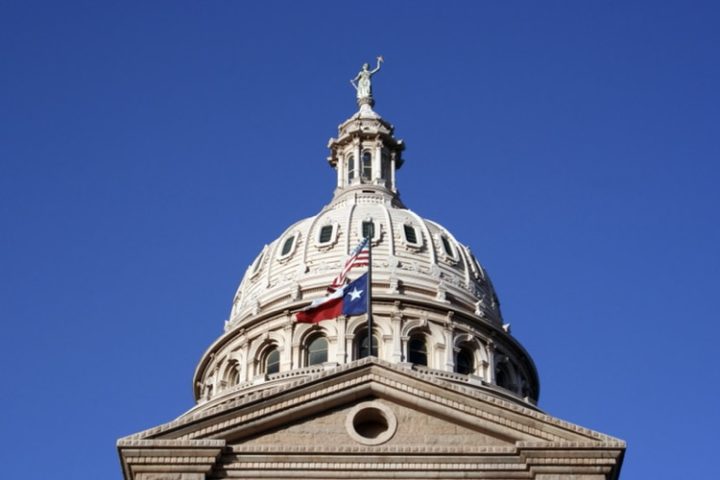
After more than six weeks of Democrat dithering, which included Democrats fleeing the state in July to deny a quorum, the Texas House of Representatives passed a new GOP-backed election integrity bill. The bill now goes back to the Texas State Senate which passed a similar version of the bill on August 12.
The bill passed by an 80-41 vote on Friday, after many hours of fiery debate that lasted well into the night the day before.
As soon as the State Senate and the House reconcile the minor differences between the two versions of the bill, it will head to Governor Greg Abbott’s desk. Abbott said on Thursday that he looks forward to signing the bill into law.
After the contentious 2020 election during which Democrats used the COVID-19 pandemic as an excuse to loosen voting requirements throughout the country, Texas joins at least 18 other states which have acted to restore integrity to the democratic process.
The new Texas law would do away with so-called 24-hour voting locations — a voting method used solely due to COVID-19 primarily in Harris County which includes Houston. Democrats claim that doing away with the brand new form of voting is racist since a report claimed that 53 percent of those who used the new method were racial or ethnic minorities. Republicans claimed that the method was ripe for voter fraud largely because partisan poll watchers were unable to monitor the process.
Under the new law, poll sites that offer early voting would need to be open a minimum of nine consecutive hours between 6:00 a.m. and 10:00 p.m. This represents an expansion of early voting hours as formerly such polls were only required to be open for eight hours. Voters who are in line to vote when polls close will not be turned away and will still be allowed to vote that day — the same protection afforded to election day voters.
Under the new legislation, people who assist others with voting will need to fill out a document listing their name, address, and relationship to the voter. Such assistants will also need to sign an oath, under penalty of perjury, stating that the voter is eligible for help due to a physical disability or is unable to read the ballot language.
Partisan poll watchers will be able to observe elections in Texas without obstruction so that they may call attention to “any observed or suspected irregularity or violation of law.” This was alleged in several states during the 2020 election including the key battleground states of Pennsylvania, Wisconsin, and Georgia.
The new legislation would also strengthen identification requirements for mail-in voting and put an end to the practice of election officials sending out unsolicited mail-in ballot applications.
House Democrats, who left the state in July for 38 days in order to deny a quorum to the House, reacted with angry accusations of GOP racism.
“This bill was never about election security or voter integrity. It was always about using the Big Lie to justify restricting access to the ballot box,” said House Democratic Caucus Chair Chris Turner in a statement.
Turner and the Texas Democrats next took credit for the U.S. House of Representatives passing the John Lewis Voting Rights Act, which happened on Tuesday.
“From the very beginning of this fight, we knew we wouldn’t be able to hold off this bill forever. That’s why federal voter protection legislation is essential. Our 38-day quorum break and hard work in Washington, D.C. led to the U.S. House passing the John Lewis Voting Rights Advancement Act sooner than anticipated,” Turner claimed. “Now, the U.S. Senate must do the same to protect Texas voters from continued Republican attacks on their freedom to vote.”
The federal legislation is expected to face a much more difficult sell in the evenly divided Senate with Democrats Joe Manchin (D-W.Va.) and Krysten Sinema (D-Ariz.) coming out against it. Both of those senators also oppose ending the filibuster, which means the legislation would need 60 votes to move forward instead of just a simple majority.
The measures proposed by the Texas GOP seem to be mainly of the common-sense variety. Voters must prove who they are in order to vote (whether in person or by mail); poll watchers from both parties must be able to observe the vote; and partisan election officials should not be allowed to flood precincts with unsolicited mail-in ballot applications. The new law even expands the hours for early voting.
In what universe are any of those precautions racist?




